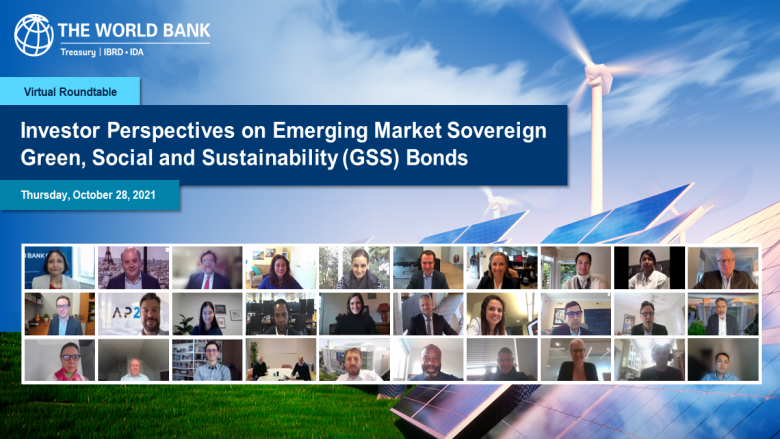As we head into COP 26, the world faces two crises— the COVID-19 pandemic and Climate Change. The first is estimated to have pushed over 100 million people into extreme poverty in 2020. The second is threatening to increase that number by another 130 million people in the next ten years. While we continue our efforts to provide financing to developing countries, we are also reinforcing partnerships with the private sector.
With this in mind, the World Bank Treasury hosted a roundtable discussion with emerging market sovereign debt investors to brainstorm challenges and opportunities for investing in sustainability-related initiatives through green, social and sustainability-linked (GSS) bonds. Participants included representatives from Alliance Bernstein, Amundi, AP2, BlackRock, BlueBay Asset Management, Calvert, Children's Investment Fund Foundation (CIFF), Franklin Templeton, Global Evolution, Nuveen, Pictet, PIMCO, Prudential, and Western Asset Management.
Anshula Kant, Managing Director and Chief Financial Officer of the World Bank Group delivered the opening address. The keynote speech was delivered by Vincent Mortier, Deputy Global Chief Investment Officer at Amundi.


